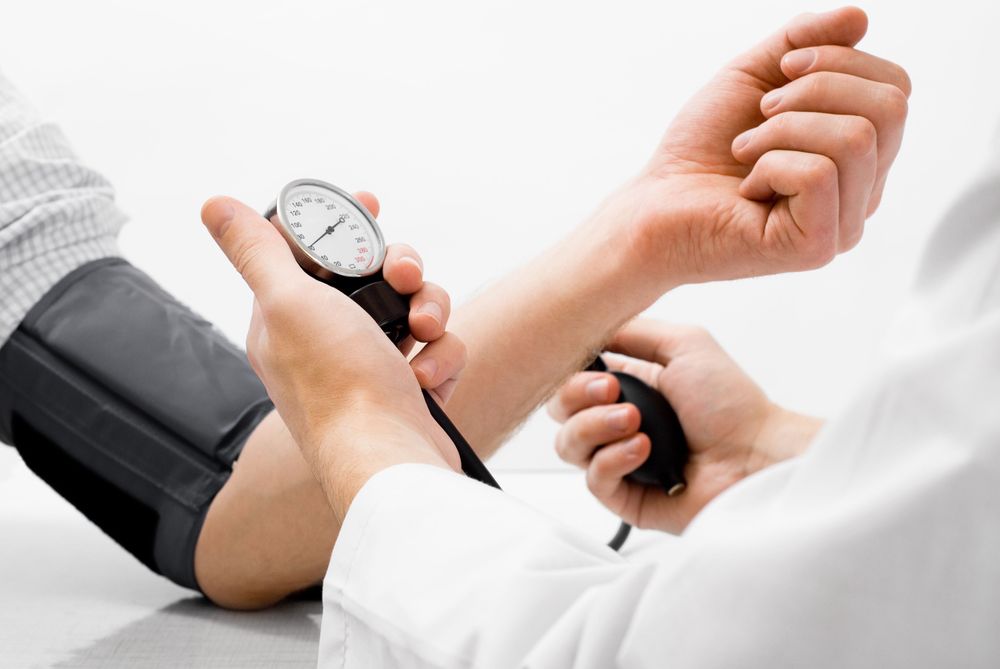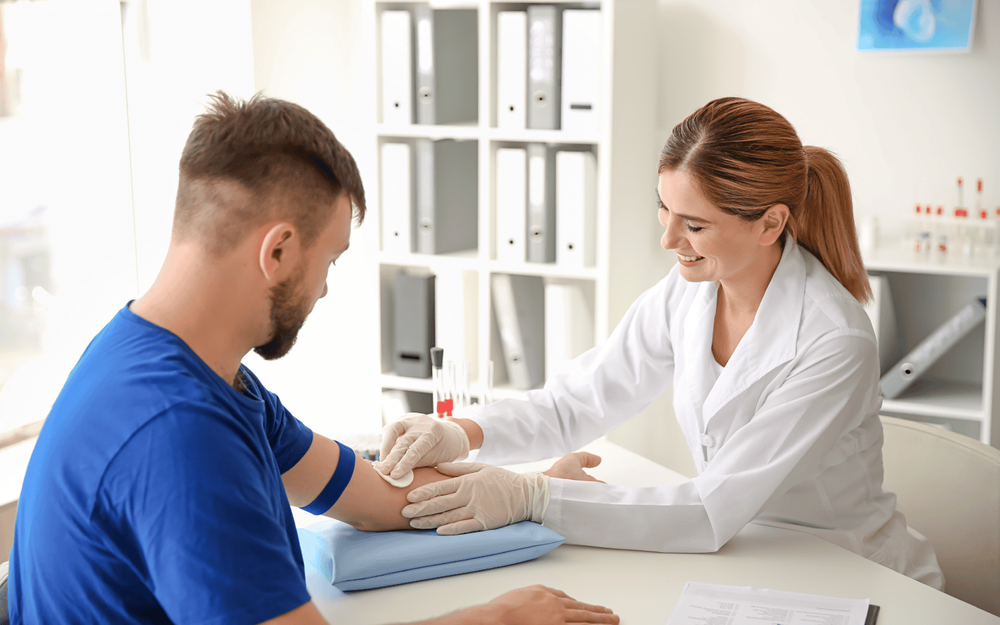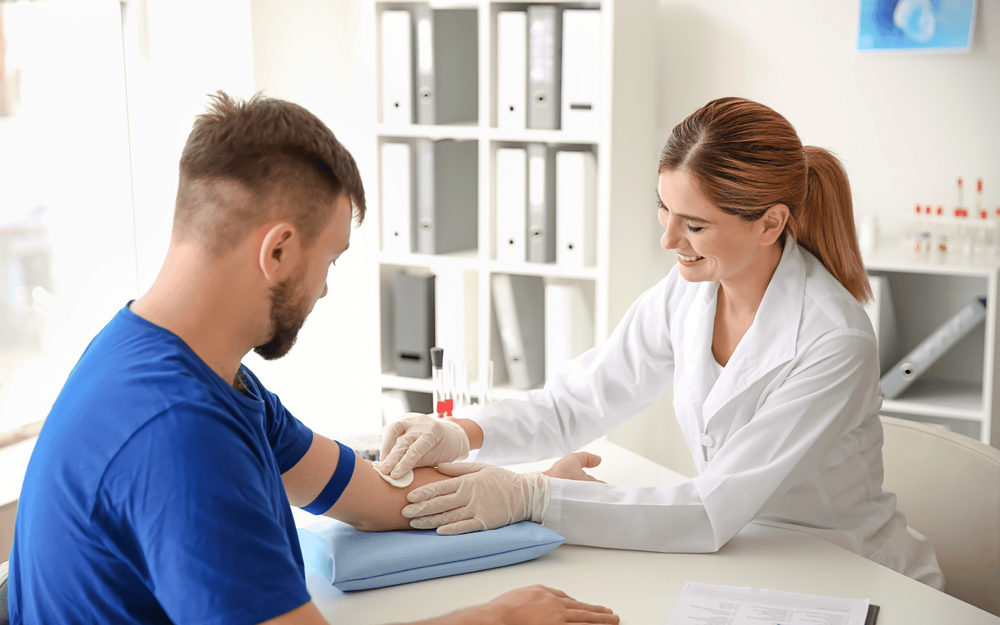
Who is at risk of colon cancer?
Colon cancer, also known as colorectal cancer or bowel cancer, is one of the most common forms of cancer in the UK. It affects the large intestine, which plays a key role in digesting food and eliminating waste. Colon cancer typically begins as small, noncancerous growths called polyps, which can develop into cancer over time if left undetected.
Understanding who is at risk of colon cancer can help you take steps toward early detection and prevention. In this article, we’ll explore the risk factors, symptoms to watch for and how regular health checks can support your overall wellbeing.
What is colon cancer?
Colon cancer starts in the colon or rectum, which together make up the large bowel. It often develops slowly, sometimes over several years and may not show obvious symptoms in its early stages. This is why screening and risk awareness are so important.
The condition usually begins with the development of polyps - small clumps of cells on the inner lining of the colon. While most polyps are harmless, some can turn cancerous. Detecting and removing these early can significantly reduce your chances of developing colon cancer.
According to Cancer Research UK, bowel cancer is the fourth most common cancer in the UK and the second biggest cancer killer. However, it is also one of the most treatable, especially when caught early.
What are the symptoms of colon cancer?
Colon cancer often presents no symptoms in its early stages, making it difficult to detect without a screening test. When symptoms do appear, they can vary depending on the location and stage of the cancer.
Common signs and symptoms include:
-
Changes in bowel habits – such as ongoing constipation or diarrhoea
-
Blood in your stool – bright red or very dark, sometimes not visible to the naked eye
-
Persistent abdominal discomfort – including cramps, bloating or gas
-
Unexplained weight loss – losing weight without trying
-
Fatigue or weakness – often due to blood loss and anaemia
-
A feeling that your bowel doesn’t empty completely
It’s important not to ignore these signs, especially if they persist. While these symptoms don’t always mean cancer, getting checked early increases your chances of a better outcome.
Who is most at risk of colon cancer?
While colon cancer can affect anyone, certain people are more at risk. Risk factors are typically grouped into non-modifiable (things you cannot change) and modifiable (lifestyle-related) categories.
Non-modifiable risk factors
These are factors you cannot control but are important to be aware of:
Age The risk of colon cancer increases significantly with age. Most cases are diagnosed in people over the age of 50, although rates in younger adults have been rising in recent years. This has led to increased awareness and calls for earlier screening in some cases.
Family history Having a close relative (such as a parent or sibling) who has had colon cancer increases your risk. This risk is even higher if your relative was diagnosed before the age of 50 or if more than one family member is affected.
Genetic conditions
Certain inherited syndromes can significantly increase your risk, including:
-
Lynch syndrome (hereditary nonpolyposis colorectal cancer) – increases the risk of colon and other cancers at a younger age
-
Familial adenomatous polyposis (FAP) – a rare genetic condition that causes hundreds of polyps to form in the colon, often at a young age
Personal medical history If you’ve had colon cancer before or polyps removed during a colonoscopy, your risk of developing the disease again is higher. In addition, conditions such as ulcerative colitis or Crohn’s disease, which cause long-term inflammation of the colon, increase the likelihood of cancer developing.
Ethnicity Some studies suggest people of African or Caribbean descent may have a slightly higher risk of colon cancer. Cultural, dietary and genetic factors may contribute to this, although more research is needed.
Modifiable risk factors
These are lifestyle factors that may increase your risk, but can often be addressed or changed:
Diet: A diet high in red and processed meats (such as bacon, ham and sausages) is linked to a higher risk of colon cancer. Conversely, diets rich in fibre, fruit and vegetables may help reduce your risk.
Lack of physical activity: Being physically inactive can increase your likelihood of developing colon cancer. Regular exercise helps keep your digestive system healthy and can reduce inflammation throughout the body.
Being overweight or obese: Carrying excess weight, particularly around the abdomen, is associated with a greater risk. Obesity is thought to affect hormones and inflammation, both of which can play a role in cancer development.
Smoking: Tobacco use is linked to many cancers, including colon cancer. Long-term smokers are more likely to develop colon polyps and cancer than non-smokers.
Alcohol consumption: Drinking alcohol regularly, especially in large amounts, can increase your risk. The more alcohol you drink, the higher the risk, so limiting intake can have a protective effect.
How is colon cancer diagnosed?
If you experience symptoms or are considered high risk, your doctor may recommend tests such as:
-
Faecal Immunochemical Test (FIT) – a home test kit that checks for hidden blood in your stool
-
Colonoscopy – a procedure that allows doctors to examine the inside of your colon and remove polyps if necessary
-
CT colonography – a scan that produces images of the colon to detect abnormalities
Routine bowel screening is offered on the NHS for adults aged 60 to 74, with plans to expand this to younger age groups. You may also opt for a private screening if you fall outside the NHS criteria or want peace of mind.
Can colon cancer be prevented?
You can’t eliminate the risk completely, but you can take proactive steps to reduce your chances of developing colon cancer:
-
Eat a healthy, balanced diet – rich in fibre, fruits, vegetables and whole grains
-
Limit processed and red meat – opt for fish, poultry or plant-based protein instead
-
Exercise regularly – aim for at least 150 minutes of moderate activity a week
-
Maintain a healthy weight
-
Stop smoking
-
Reduce alcohol consumption
Most importantly, get screened, especially if you’re over 50 or have risk factors. Detecting and removing polyps early is one of the most effective ways to prevent colon cancer.
Take control of your bowel health with Bluecrest Wellness
If you're concerned about your risk of colon cancer, a private health assessment can provide early insights and peace of mind. At Bluecrest Wellness, our full body health checks include a wide range of screenings to assess your digestive, cardiovascular and overall health.
All assessments include:
-
A detailed Results Report
-
Free 24/7 GP helpline access for one year
-
Flexible booking at over 2,000 locations across the UK
-
Tests for blood pressure, cholesterol, diabetes risk and more
Taking care of your bowel health is easier than ever and it starts with understanding your personal risk.


















